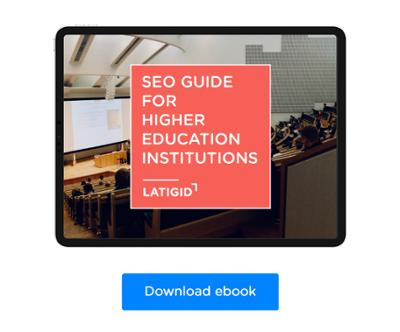
In today's highly competitive higher education landscape, institutions face the ongoing challenge of retaining students and ensuring their academic success. High student attrition rates not only impact the financial stability of universities and colleges but also hinder the overall educational experience for students. To address this pressing issue, educational institutions are increasingly turning to Customer Relationship Management (CRM) systems as a powerful tool for improving retention rates.
In this article, we will explore how leveraging CRM in higher education can significantly impact student retention rates. We will delve into the various functionalities and features of CRM systems that can be tailored to the higher education sector.
The importance of student retention in higher education
First and foremost, high student retention rates are indicative of a thriving and supportive learning environment. When students persist and remain engaged in their studies, it reflects positively on the institution's ability to meet their educational needs, offer valuable resources, and foster a sense of belonging. Retained students have the opportunity to fully benefit from the academic programs, faculty expertise, and campus resources available to them.
Financial implications also underscore the importance of student retention. Higher education institutions heavily rely on tuition and fees for their operational budgets. When students drop out or transfer to other institutions, it results in a loss of revenue and can significantly impact the financial health of the institution. In contrast, institutions with high retention rates are better positioned to invest in educational enhancements, faculty development, and student support services, ultimately creating a virtuous cycle of improvement.
Moreover, student retention has a profound impact on the overall student experience. When students feel supported, connected, and valued, they are more likely to persist in their studies and achieve their academic goals. Institutions that prioritize retention invest in comprehensive support systems, such as academic advising, mentoring programs, tutoring services, and career counseling, which contribute to student success and satisfaction. By fostering a supportive environment, institutions empower students to overcome challenges, stay motivated, and graduate on time.
CRM (Customer Relationship Management) systems and their potential benefits
CRM stands for Customer Relationship Management. It is a technology-enabled strategy and set of practices that businesses and organizations use to manage and analyze interactions with their customers or constituents. A CRM system is a software platform designed to support these activities and provide a centralized database for storing customer data and facilitating relationship management.
CRM systems can be customized and tailored to specific industries and organizations. In the context of higher education, CRM systems are adapted to meet the unique needs of managing student relationships, admissions, academic advising, alumni relations, fundraising, and other activities specific to educational institutions.
Check this article made by Hubspot: How to Use a CRM: The Ultimate Guide
How CRM systems can be adapted in the higher education sector
One of the primary ways CRM systems can be adapted for higher education is through student relationship management. By capturing and storing comprehensive student data, CRM systems provide institutions with a holistic view of each student's journey, including their academic progress, interests, interactions, and support needs. This enables institutions to personalize communication, deliver targeted services, and proactively address student concerns.
CRM systems can play a crucial role in student recruitment and admissions processes. By leveraging CRM functionalities, institutions can manage prospective student inquiries, track recruitment efforts, and monitor the admissions pipeline. CRM systems enable personalized communication with prospective students, allowing institutions to nurture relationships, provide timely information, and address any questions or concerns that may arise throughout the admissions process.
Once students are enrolled, CRM systems continue to be valuable tools for fostering student success and retention. With CRM, institutions can track and analyze student performance indicators, monitor engagement levels, and identify at-risk students. Early warning systems can be developed using CRM data to proactively intervene and provide support, ultimately increasing student retention rates and promoting academic achievement.
CRM systems also facilitate effective academic advising and student support services. By centralizing student data, CRM systems enable advisors to access comprehensive information about students, such as academic history, course selections, and extracurricular activities. Advisors can leverage this information to provide personalized guidance, assist with course selection, and identify additional resources or support services that may benefit the student.
Alumni relations and fundraising efforts can greatly benefit from CRM systems in the higher education sector. Maintaining strong relationships with alumni is essential for fostering ongoing engagement, securing support for fundraising campaigns, and leveraging alumni networks for various initiatives. CRM systems enable institutions to track alumni interactions, manage communications, and tailor engagement strategies based on individual preferences and interests.
Furthermore, CRM systems provide powerful analytics and reporting capabilities that support data-driven decision-making in higher education. Institutions can analyze CRM data to gain insights into enrollment trends, student outcomes, program effectiveness, and alumni engagement. This valuable information can inform strategic planning, resource allocation, and the development of targeted initiatives to enhance student experiences and institutional performance.
Related article: How can universities benefit from a CRM?
Key features and functionalities that can support student retention efforts
Comprehensive Student Profiles
CRM systems provide a centralized database that captures and stores comprehensive student profiles. These profiles include demographic information, academic history, course registrations, and extracurricular activities.
Early Warning Systems
CRM systems can incorporate early warning systems to identify at-risk students. By tracking key indicators, such as academic performance, attendance, and engagement levels, institutions can proactively identify students who may be facing challenges or experiencing difficulties.
Personalized Communication
CRM systems facilitate personalized communication with students. Through targeted email campaigns, automated reminders, and notifications, institutions can deliver timely and relevant information to students.
Academic Advising and Support
CRM systems can integrate with academic advising and support services, providing advisors with a comprehensive view of each student's academic journey. Advisors can access student profiles, review progress, and provide personalized guidance.
Student Success Monitoring
CRM systems enable institutions to monitor student success and progress. Key metrics, such as course completion rates, credit accumulation, and degree progress, can be tracked to identify potential barriers to student success.
Data Analytics and Reporting
CRM systems offer robust data analytics and reporting capabilities. Institutions can leverage these tools to generate reports and gain insights into retention trends, student outcomes, and engagement levels.
Alumni Relationship Management
CRM systems can extend their functionalities to alumni relations, contributing to ongoing engagement and support. By tracking alumni interactions, managing communications, and facilitating targeted engagement initiatives, institutions can foster lifelong relationships with alumni.
Related article: What is the best CRM for universities?
In conclusion, leveraging the key features and functionalities of Customer Relationship Management (CRM) systems can significantly enhance student retention efforts in higher education institutions. By utilizing comprehensive student profiles, early warning systems, personalized communication, academic advising and support, student success monitoring, data analytics and reporting, and alumni relationship management, institutions can create a supportive and engaging environment that promotes student persistence and success.
LATIGID
We are a Higher Education Marketing Agency, specialized in CRM implementation. With a deep understanding of the latest industry trends and best practices, we are well equipped to help your institution grow.
If you are looking for a Higher Education Marketing Agency to partner with, check our page to see what we can do for you!
Download our SEO guide and learn how to build a strategy to optimize your Higher Education Institution's website




